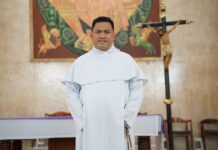THE PAST IBP elections stimulated once more the political itch in students. Ever since the proclamation of Martial Law, student disturbance motivated by politics was conspicuously absent. Except the not-so-spectacular emergence of the KB and the other extra-curricular activities, students remained quiet in their proper pale – study.
Now almost five years of political quiescence, they suddenly sneaked into the scene again, surfacing like snails out of hibernation. They swarmed all over either as campaigners, rallyists, poll watchers, sympathizers, etc.
This current phenomenon is as expected. Students have always been responsive to political and social issues. Their political sympathies have often stimulated unrest and catalyzed changes. Considered as the “incipient elite” of society because of the education they receive, students have always played a crucial role in political and social upheavals.
In most cases, however, movements and campaigners started by students and taken over by some other element – often by the military. Thus, even if the students are the initiators, it takes others to implement what they are campaigning for. Moreover, the very set-up of the university allows for the natural emergence of student organization. They are thus easier to mobilize since lines of communication are unhampered.
Student preoccupations with politics are explained by many factors ranging from environmental influences to personal psychology. Students today live in a world where one can now what is happening around the world in just a flick of a switch. Mass media indeed heightens the students’ awareness of social realities and gives them a greater feeling of involvement and proximity to the problems of society. Furthermore, they can breathe the air of the academic of the milieu where ideas and solutions are discussed.
One psychological factor that excites student political involvement in their being “marginal men.” Students are in period of transition between dependence and independence. They are not yet fully responsible. This stage of student life is inherently a tension filled period. Politics and its burning issues provide an apt outlet for the expression (though seldom the resolution) of such tensions.
Perhaps student idealism is the best stimulant to politics. But such idealism often gets out of bounds. Utopian obsession makes students irritated by any problematic situation. Their realization of the wide gap between the real and the ideal makes them impatient, forcing them to apply whatever means if only to rectify the situation. In not a few cases has violence become the method of change.
Student idealism gives birth to an unbending ideological commitment. As Max Weber suggests, students tend to develop an ethics of “absolute ends”. Their choices often fluctuate between two extremes: black or white, communism or not, radical change or status quo. Compromise is an unrespected word. We have seen in the past how this absolutist tendency expressed itself in two extreme student positions: the hippies who doffed and damned all issues and advocated an “I-don’t-care” ideology; and the radicals who cared so much, parroting Marx, storming the bastions of society in the name of their “enlightened” political creed. Even if such extremist attitudes animated by idealism are understandable, they are regrettable. For activism must always be tempered by a sense of realism. Students cannot be a tail wagging the dog.
If we are to back to the past political involvement of students in our country, the heavy dose of idealism is striking. A deeply instilled imperative to change the system to pervaded. “IBAGSAK, IBAGSAK,” was their by-word. Their propositions were oftern antithetical. But what was their thesis? What was their program? We were sure what the students were against, but we seldom understood what they for. The vagueness of their stand could be the reason why their movements were frequently considered threats to national security. Another characteristic is the degree if certainty with which their political involvement was expressed. Certainty of their own rectitude, certainty of the accuracy and the profundity of their own analysis of political problems, certainty of the iniquity of those who disagree with them. Of course, dissent must be accompanied by firm conviction. But students should have the humility to recognize the possibility that their understanding of what is wrong may also be wrong, or at least insufficient. If students only recognize the possible fallibility of their political judgments, they would not lose themselves in transport of moral indignation, screaming tantrums, brawling in the streets, noise barrage, mouthing obscene and virtually senseless slogans against those whom they think are tyrants, Hitlers, etc.
Students are expected to involve themselves in politics as students, i.e., in an educated, intelligent, objective way. This doesn’t mean that they should view nationwide discontent in some sort of smug Olympian detachment. But this doesn’t mean either that they should engage in breathless preoccupation with the passing political scene, off-campus field work, participation in the demonstrations, political organizational activity, etc. to the detriment of their studies. History tells us that campuses that are politicalized do not breed real students. Distracted students, yes. For the state of being enmeshed in political issues implies a certain degree of emotional and intellectual commitment which leaves little room for open-minded curiosity. There is no destructive conflict between thought and action, but one should recognize that there is a time for each. As students their primary duty is to give themselves totally to study: to deepen their understanding of contemporary and past events so that when their time comes to get involved responsibility in public affairs, they are prepared for it.
Students are not the saviors of the world though they may delude themselves into thinking so. At least, not yet. If they want identify and sympathize with the oppressed, the poor, and the tyrannized, as students, their task should be to learn the skills for eradicating poverty and backwardness, to develop fluid strategies for peaceful social change. Poverty and tyranny do not abolish themselves even if there is a political will to do it. There is a need for a skill which take time, patience, unhampered study in order to be acquired. Even political involvement itself demands skill, a penetrating and practical understanding of political affairs. If by the student’s meager knowledge, he analyzes current political problems in a shallow manner, the remedy he shall offer will inevitably be superficial and hence, greatly ineffective.
When the time comes when students feel like taking to the streets again, perhaps, it will not be superfluous if they ask themselves the question: “Am I reacting to political issues in an intelligent way? Or is my reaction simply an emotional one, replete with passion but wanting in knowledge?”
Oftentimes, the way we fight our battle is an important as the battle itself.
(Editor’s note: Above is an article that Rolando V. de la Rosa, at that time an A.B. Theology student and Dominican seminarian at the UST Ecclesiastical Faculties, wrote for the April 28, 1978, Vol. 50 No. 7 issue of the Varsitarian, where he was editor of the Witness section.)













